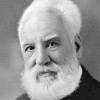He that avoideth not small faults, by little and little falleth into greater.
[Qui parvos non devitat defectus, paulatim labitur ad majora.]
Thomas à Kempis (c. 1380-1471) German-Dutch priest, author
The Imitation of Christ [De Imitatione Christi], Book 1, ch. 25, v. 10 (1.25.10) (c. 1418-27) [tr. Anon. (1901)]
(Source)
Cross-referenced in some sources to Ecclesiasticus (Sirach) 19:1 -- "One who despises small things will fail little by little."
(Source (Latin)). Alternate translations:
He that will not flee small sins, shall by little and little fall into greater.
[tr. Whitford/Raynal (1530/1871)]
He who will not flee small sins will, by little and little, fall into greater sins.
[tr. Whitford/Gardner (1530/1955)]
He that avoideth not small slips, by litle and litle may take a great fall.
[tr. Page (1639), 1.25.39]
He who does not inure himself to vanquishing by subduing less temptations, will never be able to grapple with more violent and trying ones; and infirmities once yielded to, grow insensibly to stubborn habits of vice.
[tr. Stanhope (1696; 1809 ed.), "The Christian's Pattern"]
He who is not careful to resist and subdue small sins, will insensibly fall into greater.
[tr. Payne (1803), 1.25.12]
He that avoideth not small faults, by little and little falleth into greater.
[ed. Parker (1841)]
He who is not careful to resist small sins, will insensibly fall into greater.
[tr. Dibdin (1851)]
He that does not shun small defects, by little and little falls into greater.
[ed. Bagster (1860)]
He who shunneth not small faults falleth little by little into greater.
[tr. Benham (1874)]
He who does not overcome small faults, shall fall little by little into greater ones.
[tr. Croft/Bolton (1940)]
He who does not try to shun small faults slips little and little into greater ones.
[tr. Daplyn (1952)]
The man who doesn't keep clear of petty faults will gradually slip into graver ones.
[tr. Knox-Oakley (1959)]
The man who does not avoid small failings gradually drifts into greater ones.
[tr. Knott (1962)]
If you do not avoid small faults, you will soon commit greater ones.
[tr. Rooney (1979)]
The person who does not avoid small faults, little by little slips into greater ones.
[tr. Creasy (1989)]
Quotations about:
incrementalism
Note not all quotations have been tagged, so Search may find additional quotes on this topic.
Why have I always told you that the greatest way to change the world is to secretly commit little acts of compassion? It does not matter that people know what you are doing, but rather that you do it. When a large enough number of people finally do something, or something is done enough times, be it prayer or vegetarianism or whatever, it will then happen everywhere, to everyone. It will suddenly seem just normal. […] You must behave as if your every act, even the smallest, impacted a thousand people for a hundred generations. Because it does.
Thomas "Thom" Hartmann (b. 1951) American broadcaster, psychotherapist, businessman, political commentator
The Prophet’s Way: A Guide to Living in the Now, “The Hundredth Monkey” (1997)
(Source)
Often quoted as:
The most powerful way to change the world is to secretly commit little acts of compassion. You must behave as if your every act, even the smallest, impacted a thousand people for a hundred generations. Because it does.
Little by little, one travels far.
[Poco a poco se anda lejos.]
(Other Authors and Sources)
Spanish Proverb
Literally, "Little by little, one goes a long way." Sometimes misattributed to J. R. R. Tolkien.
It may well be that we will have to repent in this generation. Not merely for the vitriolic words and the violent actions of the bad people, but for the appalling silence and indifference of the good people who sit around and say, “Wait on time.”
Since the general civilization of mankind, I believe there are more instances of the abridgment of the freedom of the people by gradual and silent encroachments of those in power, than by violent and sudden usurpations.
The most successful men in the end are those whose success is the result of steady accretion. That intellectuality is more vigorous that has attained its strength gradually. It is the man who carefully advances step by step, with his mind becoming wider and wider — and progressively better able to grasp any theme or situation — persevering in what he knows to be practical, and concentrating his thought upon it, who is bound to succeed in the greatest degree.
Alexander Graham Bell (1847-1922) Scottish-American scientist, inventor, engineer
Interview, in Orison Swett Marden, How They Succeeded, ch. 2 (1901)
(Source)
Now we may have more preachers out there than we have drinkers. But a fellow told me a story one time about a man down in Kentucky, where they make bourbon. And he said you can take a jigger, or two jiggers, and get by all right. But if you try to take the whole bottle, why you have lost what you started with. So don’t try to take it too quick. And don’t try to do all of it at once.
Lyndon B. Johnson (1908-1973) American politician, educator, US President (1963-69)
“Remarks to a Group of Southern Negroes,” speech (1965-04-02)
Johnson frequently used this metaphor. E.g., on submitting major policy legislation to Congress in small, individual bills, rather than as a full program:
It's like a bottle of bourbon. If you take it a glass at a time, it's fine. But if you drink the whole bottle in one evening, you have troubles. I plan to take a sip at a time and enjoy myself.
[Source]
And along the same lines:
Congress is like a whiskey drinker. You can put an awful lot of whiskey into a man if you just let him sip it. But if you try to force the whole bottle down his throat at one time, he'll just throw it up.
[Source]
I think the most important thing I learned from Stephen King I learned as a teenager, reading King’s book of essays on horror and on writing, Danse Macabre. In there he points out that if you just write a page a day, just 300 words, at the end of a year you’d have a novel. It was immensely reassuring — suddenly something huge and impossible became strangely easy. As an adult, it’s how I’ve written books I haven’t had the time to write, like my children’s novel Coraline.
Neil Gaiman (b. 1960) British author, screenwriter, fabulist
Blog entry (2012-04-28), “Popular Writers: A Stephen King Interview”
(Source)
Contributor's note to an interview with Stephen King, "The King and I," Sunday Times Magazine (2012-04-08).
The saving of our world from pending doom will come, not through the complacent adjustment of the conforming majority, but through the creative maladjustment of a nonconforming minority.
Martin Luther King, Jr. (1929-1968) American clergyman, civil rights leader, social activist, preacher
Strength to Love, ch. 2 “Transformed Nonconformist,” sec. 3 (1963)
(Source)
It is the greatest of all mistakes to do nothing because you can only do little. Do what you can.
Sydney Smith (1771-1845) English clergyman, essayist, wit
Elementary Sketches of Moral Philosophy, Lecture 19 “On the Conduct of the Understanding, Part 2” (1849)
(Source)
Based on a lecture in a series given at the Royal Institution (1804-1806).

















